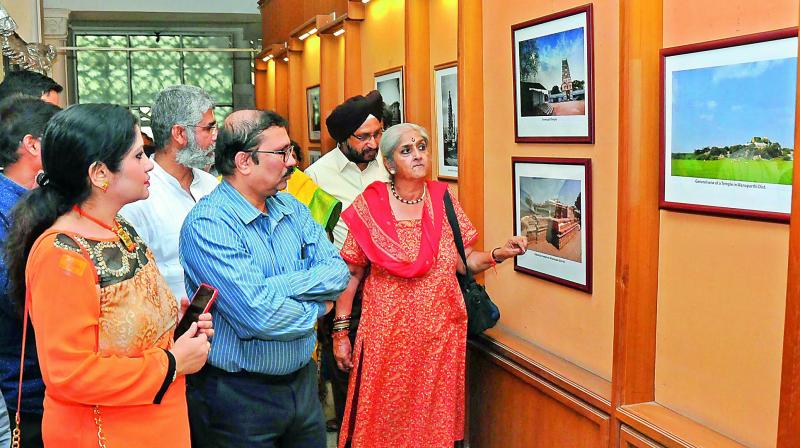Preserving rural heritage
An ongoing photo exhibition at the Salar Jung Museum captures Telangana’s rich rural legacy while emphasising the need for conservation.

A picture is worth a thousand words, and a collage of them has an impact which no other narrative can. A special photo exhibition on ‘Telangana Monuments and Sites’ at the Salar Jung Museum has precisely this kind of effect, with the 59 photographic panels bringing to light the forgotten cultural heritage dotting the rural landscape of Telangana.
Curated by the Salar Jung Museum in association with INTACH, Hyderabad Chapter to mark the International Day for Monuments and Sites, the exhibition comes as an eye-opener. Most visitors are stunned by the rich heritage which, though right in their backyard, is still waiting to be explored and shared.
The photographs give a peep into the rich cultural legacy of Telangana spanning 5000 years, and show how heritage has always been a source of identity and cohesion for communities. Be it the beautiful Thousand Pillar temple of Warangal, the elegant Medak Church or the Pillalamarri banyan tree in Mehboobnagar — the architectural brilliance and significance of these places can’t be missed, proving to be a big draw for devotees and history enthusiasts alike.
If on the one hand, the photographs capture the serene surroundings of Ramappa temple, Deep Mahal at Anantagiri, Kali Peddama Jathra of Mancherial, bastion and fortification wall of Domakonda Fort and the hanging bridge at Lankavara Lake, there are also pictures of step wells, water bodies and tanks located in the premises of ancient temples and forts such as Bhongir Fort, Osmania University garden, Kanteswara temple in Nizambad, Masab Tank and Ibrahimpatnam. Interestingly, all of these eye catching frames have been shot by Photo Walkers, a group of photographers that includes P. Anuradha Reddy, President, INTACH, Hyderabad Chapter.
“For centuries, the rural landscapes have maintained a balance between human activity and the environment. Though transformation and change remain an ongoing process, they constitute a complex ensemble of tangible and intangible living heritage. It is important that we research, protect and preserve all forms of heritage whether urban or rural,” says Anuradha Reddy, who also emphasises the need for protecting the forests.
Destruction of forests leads to disturbance of flora and fauna and drives animals out of their natural habitats in search of water and food, she adds.
Meanwhile, through such exhibitions, the International Council on Monuments and Sites (ICOMOS) seeks to raise awareness about the relevance of rural landscapes, the challenges that encompass their conservation and the resultant benefits. “We want to build links with communities and involve them in conservation of the rural landscape,” says A. Nagender Reddy, In-charge Director, Salar Jung Museum.

